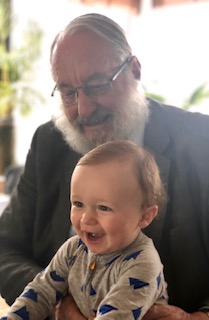Most people trust in education to help young people become better at those things that schools select to be taught, to improve the prospects of the young to live a good life, and thereby to improve the society in which they live. I trust in education to do those things, but I also have a different concern. I wish to change the way we see education and schooling (which are not the same), so that we can better fulfil the trust we place in education in what some have dubbed the ‘post-truth’ age. While I have little time for proponents of the ‘post-truth’ age and none at all for those trumpeting ‘false news’ and ‘alternative facts,’ I do have concerns about the long-held belief that we are all engaged in a search for truth.
In his Metaphysics, Part 1, Aristotle wrote that ‘All men by nature desire to know.’ Given that he equates knowledge with justified, true belief, his dictum has been taken to legitimate a search for truth that extends beyond giving an account of what an individual or group of people currently accept as true. This gives rise to two kinds of problem. The first kind concerns just what, if anything, is established by this dictum. If it is an empirical claim, it may be wrong, as was his claim about the source of the Nile. Or it may be subject to the same kind of criticism as a claim like ‘All men by nature kill other men,’ that is, even if it is true, it is not desirable.
The second kind of problem concerns what truth is over and above what is justifiably believed on the best evidence currently available to us. If the answer is ‘nothing,’ then calling something ‘true’ simply misleads us into thinking that there is something more to be had. If the answer is that calling something ‘true’ marks out the possibility that our current knowledge claims are subject to revision in the light of new and better evidence, then it just means that this claim is as good as it gets at present. If truth is taken to be correspondence with an unobservable reality, then we really do have a problem, one which philosophers have tried unsuccessfully to solve by appealing to philosopher kings, deductive logic, clear and distinct ideas, or suchlike. I am persuaded that to ask ‘But is it really true?’ of something for which we have the best evidence available, which evidence is convincing by our current standards of judgement, is to ask a meaningless question. As Ludwig Wittgenstein says in On Certainty (1972, p. 191), ‘With this question, you are already going around in a circle.’
For more than 50 years, I have grappled with such problems with traditional accounts of knowledge and truth. For example, where Peter Strawson in On Referring (1950) concluded that ‘The correspondence theory requires not purification but elimination’ and John Searle’s The Construction of Social Reality (1995) attempted to resuscitate correspondence theory, I think that correspondence claims are made on faith and cannot be justified within the bounds of rational argument in the tradition in which the claim is made. I have also rejected radical relativist accounts of truth as they are no better than accounts after a similar fashion of private languages. Perhaps I have failed as those who went before me have failed, but the world goes on and so be it. But I would argue that education and schooling (and much else besides) today suffers from the misconceptions and assumptions embedded in these unresolved problems. For example, today’s regimes of accountability and performativity in education and schooling rely on problematic accounts of knowledge and truth (for example, knowledge as multiple and truth as quantitative or pragmatic) that result in cynicism toward, or antagonism about, claims based on rational argumentation.
So where to from here?
For the past 15 years, I have been investigating whether ‘trust’ might be a more useful replacement for ‘truth’ as a basis for rational argumentation and action. Truth plays a useful role in our thinking. Trust would need to fulfil that function, while avoiding truth’s problems. Interestingly, in The Construction of Social Reality (1995, p. 210), John Searle indicates that ‘“True” comes from the same etymological root as “trust” and “trustworthy,” and all from the Indo-European root “deru” for “tree,” suggesting uprightness and reliability generally.’ One benefit of trust over truth is its apparent weakness, that is, that it is not absolutely certain. While truth is absolutely certain because it is not subject to changing circumstances, trust is conditional and sensitive to changes in circumstances or understandings.
Yet trust has received scant attention in traditional western philosophy. Much of the recent philosophical attention to trust has focussed on moral relations between individuals (see Annette Baier, 1991), although it has also explored trust and testimony (see Harvey Siegel, 2017). We need to map the complicated social relations implied by different types of trust have in society so as to provide a workable basis for empirical research to identify what is required for a relation to be deemed trustworthy in particular circumstances for certain purposes, and thereafter, for individuals and groups to identify the particularly significant trust relations in their circumstances and so make reliable judgements and conduct good actions. For example, what are the significant trust relations in play in twilight sailing at Claremont Yacht Club?
However, if truth is taken to provide absolute certainty because of its correspondence to reality or a similar warrant, how can trust by (gullible) individuals adequately replace it? One response might be that the world imposes severe limits on what an individual can get away with trusting. Individuals live and die depending upon what they trust. Traditions thrive or wither away depending upon the trust relations that they sanction. Another response might be that trust is not something only individuals do. However we respond to such questions, we can at least provide a coherent account of types of trust and the relations that they entail. I would suggest that there are four types of trust:
- self-trust
- individual trust between persons
- individual trust of/in other things
- generalised social trust.
And we must keep in mind that trust alone is insufficient for rational action: purpose, hope and faith play an important role to play in matters of trust.
Much work remains to determine whether trust can replace truth in argumentation and action. I have begun this work in a 2018 special issue on trust in Educational Philosophy and Theory. I invite others to join me in this work by contributing their findings to PESA agora or such other publication as will advance our understanding of the usefulness of trust as a central concept in practical reasoning.
Disclosure Statement: Bruce Haynes does not work for, consult, own shares in or receive funding from any company or organization that would benefit from this article, and has disclosed no relevant affiliations.




